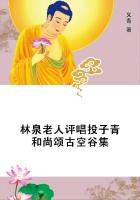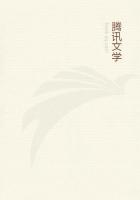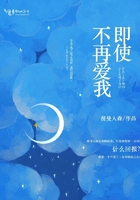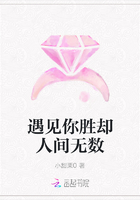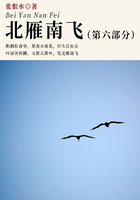(ll. 805-809) Look about you very carefully and throw out Demeter's holy grain upon the well-rolled (43) threshing floor on the seventh of the mid-month. Let the woodman cut beams for house building and plenty of ships' timbers, such as are suitable for ships. On the fourth day begin to build narrow ships.
(ll. 810-813) The ninth of the mid-month improves towards evening; but the first ninth of all is quite harmless for men.
It is a good day on which to beget or to be born both for a male and a female: it is never an wholly evil day.
(ll. 814-818) Again, few know that the twenty-seventh of the month is best for opening a wine-jar, and putting yokes on the necks of oxen and mules and swift-footed horses, and for hauling a swift ship of many thwarts down to the sparkling sea; few call it by its right name.
(ll. 819-821) On the fourth day open a jar. The fourth of the mid-month is a day holy above all. And again, few men know that the fourth day after the twentieth is best while it is morning:
towards evening it is less good.
(ll. 822-828) These days are a great blessing to men on earth;but the rest are changeable, luckless, and bring nothing.
Everyone praises a different day but few know their nature.
Sometimes a day is a stepmother, sometimes a mother. That man is happy and lucky in them who knows all these things and does his work without offending the deathless gods, who discerns the omens of birds and avoids transgressions.
ENDNOTES:
(1) That is, the poor man's fare, like `bread and cheese'.
(2) The All-endowed.
(3) The jar or casket contained the gifts of the gods mentioned in l.82.
(4) Eustathius refers to Hesiod as stating that men sprung `from oaks and stones and ashtrees'. Proclus believed that the Nymphs called Meliae ("Theogony", 187) are intended.
Goettling would render: `A race terrible because of their (ashen) spears.'
(5) Preserved only by Proclus, from whom some inferior MSS. have copied the verse. The four following lines occur only in Geneva Papyri No. 94. For the restoration of ll. 169b-c see "Class. Quart." vii. 219-220. (NOTE: Mr. Evelyn-White means that the version quoted by Proclus stops at this point, then picks up at l. 170. -- DBK).
(6) i.e. the race will so degenerate that at the last even a new-born child will show the marks of old age.
(7) Aidos, as a quality, is that feeling of reverence or shame which restrains men from wrong: Nemesis is the feeling of righteous indignation aroused especially by the sight of the wicked in undeserved prosperity (cf. "Psalms", lxxii. 1-19).
(8) The alternative version is: `and, working, you will be much better loved both by gods and men; for they greatly dislike the idle.'
(9) i.e. neighbours come at once and without ****** preparations, but kinsmen by marriage (who live at a distance) have to prepare, and so are long in coming.
(10) Early in May.
(11) In November.
(12) In October.
(13) For pounding corn.
(14) A mallet for breaking clods after ploughing.
(15) The loaf is a flattish cake with two intersecting lines scored on its upper surface which divide it into four equal parts.
(16) The meaning is obscure. A scholiast renders `giving eight mouthfulls'; but the elder Philostratus uses the word in contrast to `leavened'.
(17) About the middle of November.
(18) Spring is so described because the buds have not yet cast their iron-grey husks.
(19) In December.
(20) In March.
(21) The latter part of January and earlier part of February.
(22) i.e. the octopus or cuttle.
(23) i.e. the darker-skinned people of Africa, the Egyptians or Aethiopians.
(24) i.e. an old man walking with a staff (the `third leg' -- as in the riddle of the Sphinx).
(25) February to March.
(26) i.e. the snail. The season is the middle of May.
(27) In June.
(28) July.
(29) i.e. a robber.
(30) September.
(31) The end of October.
(32) That is, the succession of stars which make up the full year.
(33) The end of October or beginning of November.
(34) July-August.
(35) i.e. untimely, premature. Juvenal similarly speaks of `cruda senectus' (caused by gluttony).
(36) The thought is parallel to that of `O, what a goodly outside falsehood hath.'
(37) The `common feast' is one to which all present subscribe.
Theognis (line 495) says that one of the chief pleasures of a banquet is the general conversation. Hence the present passage means that such a feast naturally costs little, while the many present will make pleasurable conversation.
(38) i.e. `do not cut your finger-nails'.
(39) i.e. things which it would be sacrilege to disturb, such as tombs.
(40) H.G. Evelyn-White prefers to switch ll. 768 and 769, reading l. 769 first then l. 768. -- DBK(41) The month is divided into three periods, the waxing, the mid-month, and the waning, which answer to the phases of the moon.
(42) i.e. the ant.
(43) Such seems to be the meaning here, though the epithet is otherwise rendered `well-rounded'. Corn was threshed by means of a sleigh with two runners having three or four rollers between them, like the modern Egyptian "nurag".

